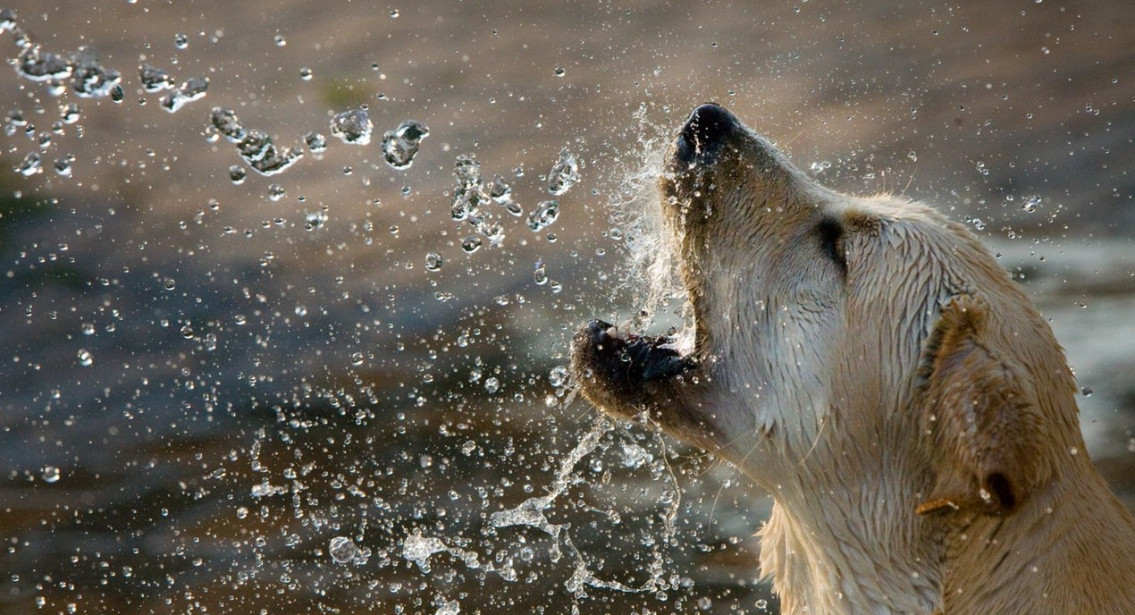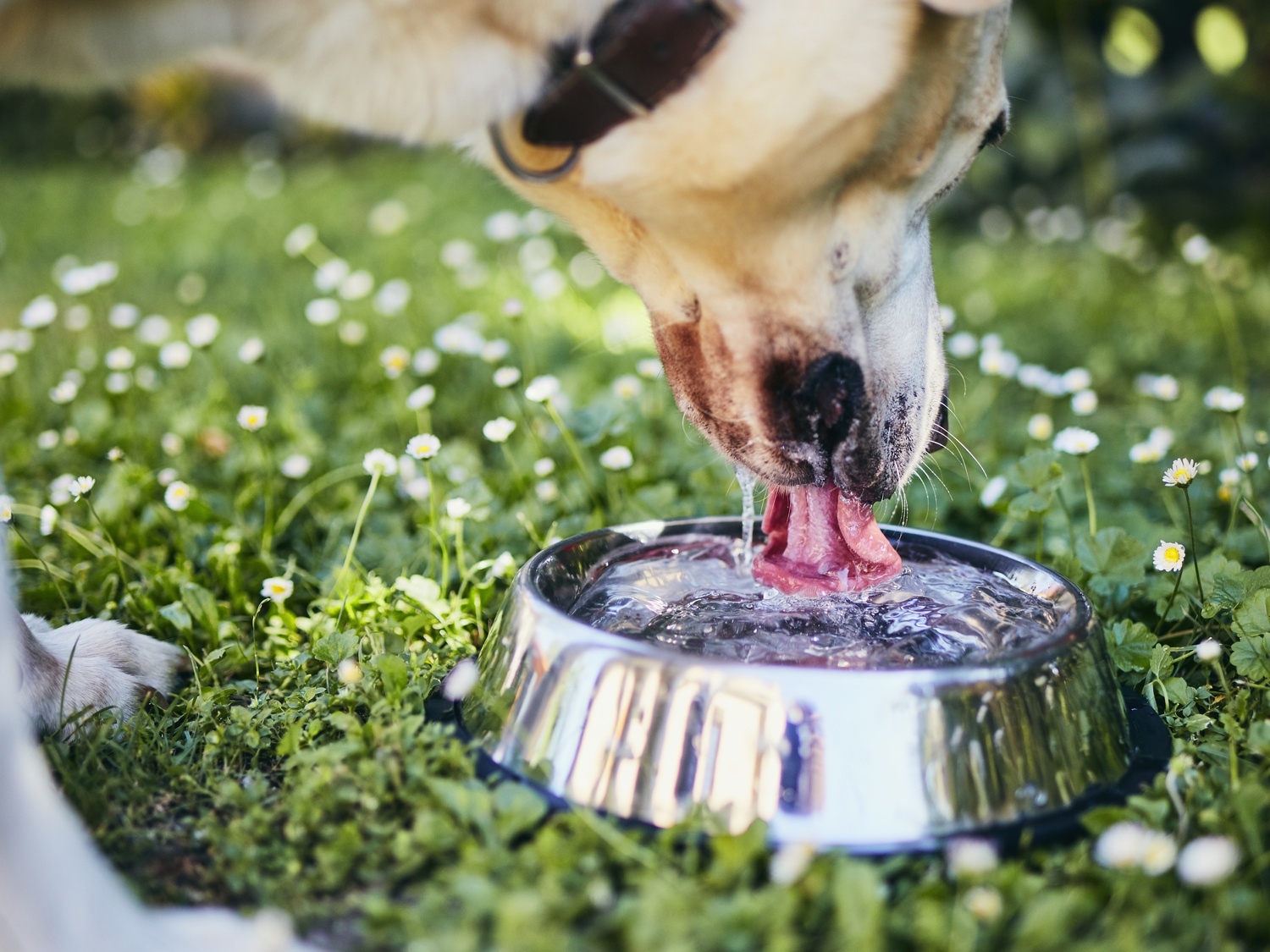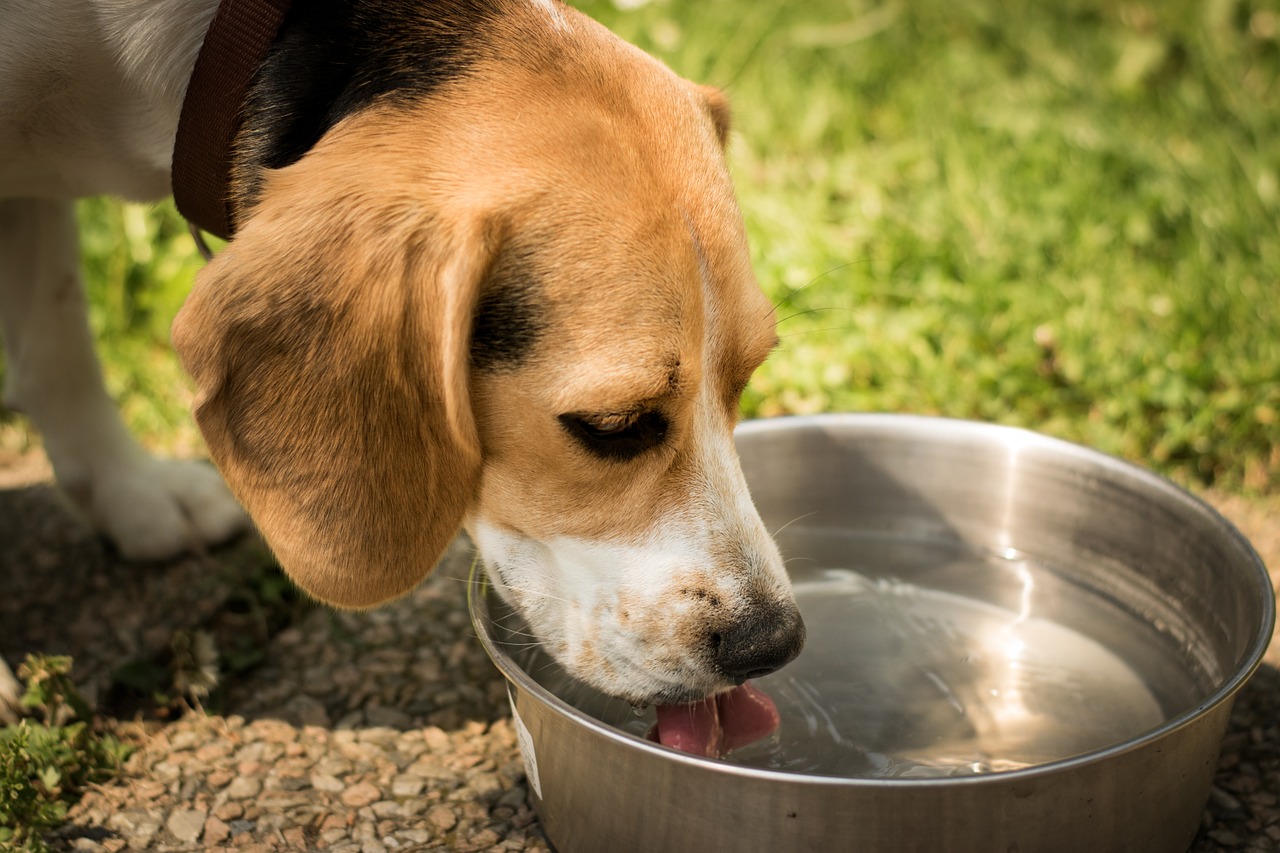
What is dog dehydration?
Dehydration in dogs is a common, potentially life-threatening condition. It’s the result of not drinking enough water and electrolytes or losing too much fluid. It requires immediate veterinary attention. If left untreated dehydration can cause serious organ damage and even death.
If you’re worried that your dog might be dehydrated contact your vet or, out of hours, your nearest Vets Now immediately for advice.

What causes dehydration in dogs?
All dogs are at risk of dehydration if they don’t eat or drink enough. There are various reasons your dog may refuse to drink, including
- An underlying illness such as (heat stroke or a fever)
- Nauseous
- Lethargy
- Pain
- Loss of fluid through vomiting, diarrhoea and or panting
- Passing urine more frequently and in larger volumes than normal (as a result of kidney failure, diabetes and other internal problems, which often cause animals to drink more).
However, drinking more is usually insufficient to compensate for the large volume of fluid they are losing if they are suffering from the above internal problems. It’s vital that you seek veterinary attention if your dog shows any changes in their urination or drinking habits.
Is my dog dehydrated?
The signs of dehydration in dogs include:
- Sunken eyes
- Dry gums
- Lethargy
- Weakness
- Collapse
- Loss of skin elasticity

How to test your dog for dehydration
To test if your dog is dehydrated, use your thumb and forefinger to pinch a little skin on their back or the top of their head. If they are well hydrated, the skin should spring back when you release it. As the skin loses moisture, it will move back into place more slowly. In the most severe cases of dehydration, it does not spring back at all.
Any reduction in elasticity of your pet’s skin is known as a skin tent’. Animals which are emaciated or obese often have mild skin tent’. This does not necessarily mean they are dehydrated. This can be difficult to assess in older animals, those with thick or long-hair coats or breeds with excessive skin folds.
How is dehydration in dogs treated?
If your vet suspects your dog is dehydrated it’s likely they will carry out a full head to toe’ examination. The purpose of this is to establish the severity of the dehydration and identify the potential cause. The reason may be obvious, such an upset tummy or heat stroke. However, in other cases, you may just feel your pet is not quite right’. It’s likely your vet will recommend some tests, such as blood samples, x-rays and ultrasound scans.
Why would my vet take a blood sample to test for dehydration?
A blood sample is a quick and easy way to clarify the severity of your pet’s dehydration and can help identify a cause and decide what treatment is needed. The blood is usually taken from a vein located in one of your pet’s front legs or a large vein in their neck called the jugular vein.
A small patch of fur is often clipped to help the vet find the vein. If the sample is taken from a leg, a small bandage will usually be applied to stop any further bleeding. This bandage can usually be removed within a couple of hours.
How do vets rehydrate dogs?
The most effective way of treating dehydration is to place the pet on a drip. This will replace any fluids already lost and also prevent further dehydration.
An alternative method of dog rehydration is administering fluid under their skin to form a camel shaped’ hump. This fluid is then absorbed over a few hours. However, it’s less effective at correcting dehydration than a drip, and is only suitable for mild cases.
Oral rehydration solutions can also be used although these are only of benefit if your pet is still wanting to drink and able to keep the fluid down. Depending on the symptoms your pet is showing they may also require antibiotics, anti-sickness medications and pain relief. You should discuss the best course of treatment for your pet with your vet.
How long can dogs go without water?
It depends on the size, breed and condition of the dog but, in general terms, even healthy dogs will struggle to go more than a few days without water. Dogs with health issues such as kidney disease are at greater risk.
Dogs should have access to fresh, clean water throughout the day. As a rule of thumb, they should drink around 50 to 60ml of water per kilogramme of body weight each day.

